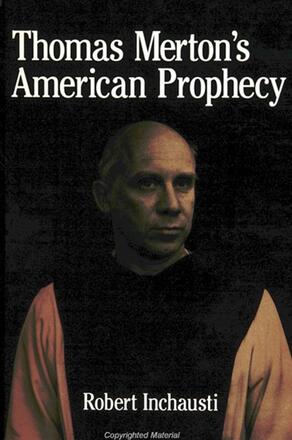
Thomas Merton's American Prophecy
Alternative formats available from:
Presents Thomas Merton as the quintessential American outsider who defines himself in opposition to the world and then discovers a way back into dialogue with that world and compassion for it.
Description
Thomas Merton was one of the most significant American spiritual writers of the twentieth century. His autobiography, The Seven Storey Mountain, published shortly after the Second World War, inspired an entire generation to reconsider the materialist preoccupations of consumer society. Twenty years later, his essays on nonviolence, contemplation, and Zen provided the most telling orthodox religious response to the New Left's radical critique of post-industrial society.
In Thomas Merton's American Prophecy, Robert Inchausti provides a succinct summary and original interpretation of Merton's contribution to American thought. More than just a critical biography, this book lifts Merton out of the isolation of his monastic sub-culture and brings him back into dialogue with contemporary secular thinkers. In the process, it reopens one of the roads not taken at that fateful, cultural crossroads called "The Sixties. "
Inchausti presents Merton not as the spokesman for any particular group, cause, or idea, but rather as the quintessential American outsider who defined himself in opposition to the world, then discovered a way back into dialogue with that world and compassion for it. As a result, Merton was the harbinger of a still yet-to-be-realized eschatological counterculture: the unacknowledged precursor, alternative, and heir to Norman O. Brown's defense of mystery in the life of the mind.
Robert Inchausti is Professor of English at California Polytechnic State University, San Luis Obispo and is the author of The Ignorant Perfection of Ordinary People, also published by SUNY Press, and Spitwad Sutras: Classroom Teaching as Sublime Vocation.
Reviews
"This is a fresh approach to Thomas Merton, situating him as an 'apostle' and 'prophet' in American intellectual history. His prophetic gifts were many, but in articulating whatever issues faced Americans, his voice remained faithful to his religious convictions. His strengths, as Robert Inchausti brings out so well, lie in the fact that he could be free enough to be a critic of both Right and Left. The author writes with a deep sense of Merton's own contemplative spirit, and is definitely simpatico. This is a book I wish I could have said I had written—it reflects my own summation of Merton's American Prophecy as we come to the end of this century. " — Brother Patrick Hart, General Editor of The Journals of Thomas Merton and Merton's last secretary
"This is the best treatment I have seen of Merton as both social critic and embodied antithesis of postmodernity. " — Curt Cadorette, University of Rochester